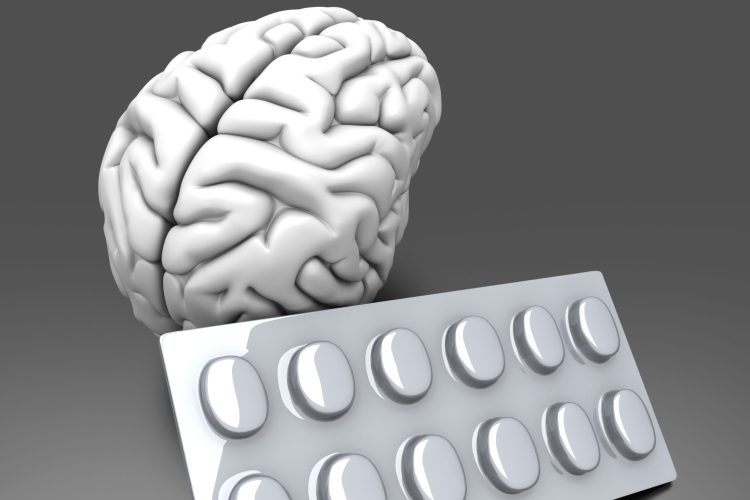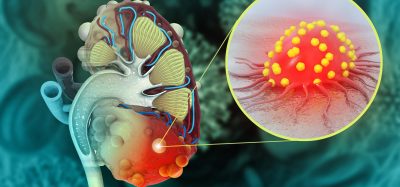LB-102: Redefining schizophrenia treatment in drug discovery
Posted: 21 April 2025 | Drug Target Review | No comments yet
Find out how LB Pharmaceuticals’ LB-102 is advancing schizophrenia treatment. This first-in-class antipsychotic demonstrates strong efficacy, safety and tolerability, potentially addressing both acute and negative symptoms. Explore its potential impact on neuropsychiatric drug discovery.


LB Pharmaceuticals is making significant strides in the field of drug discovery, particularly in the development of therapies for neuropsychiatric diseases such as schizophrenia. In an industry where early-stage therapeutics are often met with challenges in efficacy, safety and patient adherence, LB Pharmaceuticals stands out with its innovative approach. In the US its lead candidate, LB-102, is a potentially first-in-class benzamide antipsychotic that is set to redefine the treatment landscape for schizophrenia. As the company progresses through its clinical trials, including promising Phase II results, it shows strong potential to address the substantial unmet needs in neuropsychiatric care.
In this interview, Heather Turner, CEO of LB Pharmaceuticals, shares valuable insights into LB-102’s development, its unique safety profile, and the company’s vision for advancing treatments for schizophrenia and other complex neuropsychiatric conditions. Through their work, LB Pharmaceuticals showcases how early-stage therapeutics in drug discovery can lead to solutions for longstanding medical challenges.
Hope for schizophrenia patients
Heather brings extensive experience in leading biotech companies to her role. She explains that she joined LB Pharma with a clear mission: “to deliver transformative treatments for neuropsychiatric diseases, particularly schizophrenia, where patients continue to face significant unmet needs.”
At the forefront of this mission is LB-102, a once-daily, orally administered antipsychotic. Turner emphasises the “compelling balance of both efficacy and safety” demonstrated in the Phase II clinical trial results, highlighting the promising potential of LB-102. With these positive outcomes, the company is now set to explore further applications of this therapy in other underserved neuropsychiatric conditions, offering new hope to patients.
Turner explains that the trial showed “a clinically meaningful reduction in PANSS total scores – a measure of symptom severity in schizophrenia patients – across all treatment arms, including at the lower 50mg dose.” The observed effect sizes, reaching as high as 0.83 in the 100mg dose, are “clinically meaningful and competitive with, or superior to, other antipsychotics.” Turner also highlighted its potential for class-leading safety among D2 antagonists and its promise in treating negative symptoms like social withdrawal and lack of motivation, which are underserved by current treatments in the U.S.. Amisulpride, a D2 antagonist commonly prescribed off-label in Europe for these predominantly negative symptoms and of which LB-102 is a derivative of, further supports this potential. Benefitting patients, caregivers and clinicians alike, these findings offer the prospect of a treatment capable of addressing a larger spectrum of schizophrenia symptoms with improved safety and tolerability.
Advancing drug discovery in neuropsychiatric treatment
The positive results from the trial are important for the field of drug discovery because they not only highlight the potential of LB-102 as a new and effective treatment for schizophrenia in the U.S, but also signal a step forward in addressing some of the most pressing challenges in neuropsychiatric drug development. Schizophrenia remains a complex and poorly understood disorder, with many treatments failing to provide adequate relief for patients. By demonstrating a clinically meaningful reduction in PANSS total scores, including at lower doses, LB-102 showcases its ability to deliver robust efficacy comparable or even superior to current antipsychotic options.
LB-102’s success is a critical example of how targeting previously underexplored aspects of medications, combined with a careful balance of efficacy and safety, can lead to the development of drugs that are both clinically valuable and better tolerated. These results highlight the importance of advancing therapies that have the potential to address the full spectrum of symptoms in complex neuropsychiatric conditions, inspiring further innovation in the quest for more effective and patient-friendly treatments.
Promising safety profile
LB-102’s safety profile is a key differentiator. The Phase II results revealed a low incidence of extrapyramidal symptoms (EPS) and limited prolactin-related clinical side effects, both of which are common issues with other D2 antagonists. Furthermore, LB-102 does not cause sedation or gastrointestinal side effects, further enhancing its tolerability profile. EPS are drug-induced movement disorders that can cause symptoms such as tremors, rigidity and abnormal postures. These symptoms are commonly associated with antipsychotic medications, especially those that affect dopamine pathways in the brain. Turner suggests that this improved tolerability could lead to better treatment adherence and improved quality of life for patients.
Turner attributes this favourable safety profile to LB-102’s selective receptor binding profile, which minimises off-target effects while maintaining efficacy. This combination of safety and efficacy is crucial in addressing the challenges of long-term schizophrenia treatment, where a significant proportion of patients switch medications due to adverse events or intolerability. As Turner points out, “over 45 percent of treatment switches in schizophrenia occur due to adverse events or intolerability.”
A first-in-class benzamide
LB-102’s status as a potential first-in-class benzamide antipsychotic in the U.S. marks a significant advancement. It builds upon the proven efficacy of amisulpride, a widely used antipsychotic with 2 million annual prescriptions in Europe, while addressing its limitations. Turner explains that LB-102 features “improved blood brain barrier penetration which is critical for once-daily dosing and ability for lower doses. This also lowers peripheral exposure.” By combining these advantages, it has the potential to transform schizophrenia treatment in the US market, which, to date, has not had a benzamide antipsychotic (a type of antipsychotic drug that contains a benzamide structure in its chemical composition). These medications primarily work by blocking dopamine receptors in the brain, specifically the D2 receptors, which are involved in regulating mood and behaviour.
This advancement is pivotal in the drug discovery landscape, where improving the pharmacokinetic properties of therapeutics is key to addressing longstanding issues with drug tolerability and efficacy. As drug discovery continues to evolve, LB-102’s potential to redefine schizophrenia treatment highlights the importance of advancing novel drug classes that can meet the unique and diverse needs of patients, while simultaneously pushing the boundaries of what is possible in terms of safety, dosing convenience and efficacy.
The road ahead
The next step for LB-102 is the initiation of pivotal Phase III trials, expected to launch in late 2025. These trials will aim to “validate the robust efficacy and safety demonstrated in our Phase II study,” said Turner, further reinforcing LB-102’s potential as a class leading treatment option for schizophrenia. Turner confirms that they are actively engaging with regulatory authorities to finalise the trial design and ensure alignment with approval pathways.
LB Pharmaceuticals is also looking beyond schizophrenia, exploring the potential of LB-102 in other neuropsychiatric conditions. “I see significant opportunity to expand LB-102 into additional indications, including bipolar depression, predominantly negative symptoms in schizophrenia, psychosis and agitation in Alzheimer’s disease, and also MDD (major depressive disorder),” said Turner. She believes that LB-102’s mechanism of action, efficacy and tolerability make it well-suited for addressing these unmet needs, further supported by the data from amisulpride use in these indications. Furthermore, the strong efficacy observed in the 50mg dose arm suggests the potential for LB-102 to be formulated as a long-acting injectable. Turner explains that this could provide “sustained symptom relief at lower doses and improving treatment adherence for patients who struggle with daily medication regimens.” This forward-thinking approach demonstrates LB Pharmaceuticals’ commitment to improving the lives of individuals living with neuropsychiatric disorders.
Meet Heather Turner


Heather Turner was President and CEO of Carmot Therapeutics from January 2023 to June 2024, after serving as COO from September to December 2022. As CEO, she led a $150 million crossover financing round and successfully managed a dual-track IPO/strategic transaction process, resulting in Carmot’s $3.1 billion acquisition by Roche. She also expanded the team from around 35 to 70 people, adding leadership in CMC, Quality, Finance, Legal, and HR.
Previously, Turner was Chief General Counsel and Secretary at Lyell Immunopharma, Inc., where she managed a $400 million Series C financing and a Nasdaq IPO raising $425 million. She also oversaw strategic partnerships, including a $200 million development and commercialisation deal with GSK.
Turner earlier served as Executive Vice President, General Counsel, and Secretary at Sangamo Therapeutics, Inc., and Atara Biotherapeutics, Inc., where she also led portfolio strategy, HR, and medical affairs. At Orexigen Therapeutics, Inc., she managed legal, HR, government affairs, and facilities.
Turner began her career at Cooley as a corporate securities associate. She holds a J.D. from UCLA School of Law and a B.A. in Environmental Studies from the University of California, Santa Barbara.
Related topics
Central Nervous System (CNS), Clinical Trials, Drug Development, Drug Discovery, Drug Discovery Processes, Drug Targets, Neuroprotection, Neurosciences, Pharmacology, Therapeutics
Related conditions
Schizophrenia
Related organisations
LB Pharmaceuticals
Related people
Heather Turner








